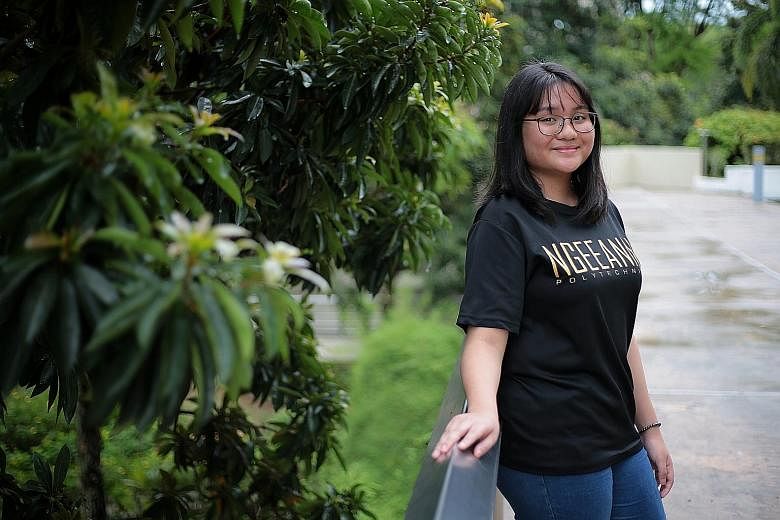More polytechnic students will get the chance to explore career opportunities in the urban sector and discover their individual passions.
The Future City Programme, launched yesterday by Education Minister Ong Ye Kung, will see students from Singapore's five polytechnics team up with academics, industry partners and government agencies to work on projects involving infrastructure, community improvement and more.
While the polytechnics have existing internship programmes in place, the Future City Programme focuses on engineering, information technology (IT) and design.
Mr Russell Chan, senior director at Ngee Ann Polytechnic (NP), which is heading the programme, told The Straits Times: "This initiative is an opportunity for the polytechnics to work together in a concerted manner... ultimately encouraging more students to consider career opportunities in these fields.
"It aims to give students a stake in shaping their home of tomorrow, when they interact with the industry on future city projects through mentorships, learning journeys and internships."
For example, on April 18, a group of students will get to visit Gardens by the Bay to observe the back-of-house facilities and equipment, such as the biomass generator and the advanced cooling systems used for the domes.
Mr Ong, who spoke during the Education and Career Guidance Symposium at NP, said the programme would enable students to understand how different skill sets in engineering, data analytics, IT and design can be applied in a multi-disciplinary project.
"It brings home the point that... we should be more focused on the purpose of our work, what we seek to achieve and the difference we want to make - as opposed to just answering the question of what I enjoy studying the most."
Highlighting the importance of proper education and career guidance, he said: "In life, we all need a compass which points us in the right direction that means most to us and best fulfils our aspirations and dreams."
Mr Ong shared how he himself had discovered his passion for public service in his early 40s.
"I don't think it's late - Confucius' prescription is that one knows your purpose in life only at 50," he added.
As a teenager, he had told himself his passion was mathematics because it was his strongest subject, he said. "All those years... that was not real passion. It was what it was - my strongest academic subject."
He was "quite lost" and it was only after working in ministries, as a union leader and more that he discovered the work that appealed to him most.
Mr Ong also highlighted the Education and Career Guidance Centres at the Ministry of Education, secondary schools, polytechnics and Institute of Technical Education colleges.
Last year, counsellors at these centres saw over 14,000 students, a 40 per cent increase from 2017.
"It is difficult for a student to discover their passion and career purpose at a young age, but hopefully education and career guidance can get them to start thinking about it," he said.
While it is unrealistic to expect every student to be able to discover their passion during their formative education years, it is possible to raise their level of self-awareness and recognise their strengths, Mr Ong added. "Not quite a compass yet, but we would have at least magnetised the needle."
Mr Raymond Moh, chief executive of artificial intelligence startup Hanalytics, which has joined the Future City Programme, said the initiative would "open up a gateway of opportunities to engage, excite and inspire young talents in shaping the future together".
Ms Abigail Du, a 17-year-old aerospace technology student at NP, said: "While my dreams and aspirations may change in time to come... I hope this programme helps me to develop skills to tackle any problems I may face in the working world."


